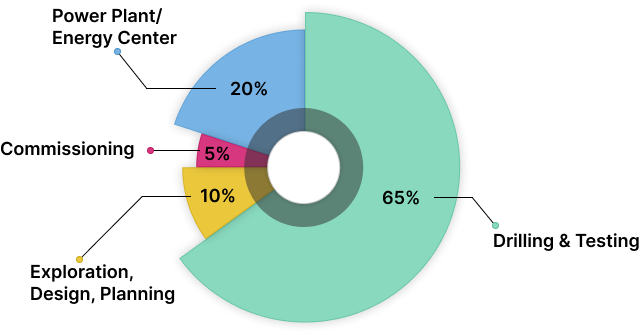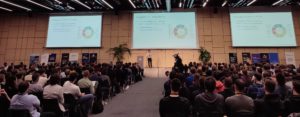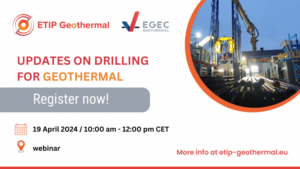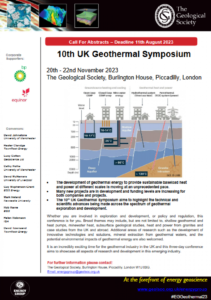With the recent energy crisis in Europe and worldwide, there is no doubt that we need several alternatives and sustainable energy sources. Geothermal energy has been identified with one of the greatest potentials as the world is transitioning toward renewable and sustainable net zero energy. However, this geothermal energy comes with a high price, and about more than 50% of this high price comes from the drilling itself. Further, most research show that it takes more than six months for a drilling phase called the ‘well completion,’ which is a process of making a well ready for production or injection after drilling operations. The following graph shows the distribution of costs on a geothermal plant.

Most European geothermal well completion operations cost around 2000 Euros per meter of drilling. Moreover, wells drilled through metamorphic and ingenious formations can have higher costs with a longer time to drill up to 5000 meters. Further, geothermal lithological characteristics and drilling methods also contribute to the drilling cost.
OptiDrill’s Technical Manager, Kevin Mallin (Geolorn), presented the OptiDrill[1] project to the Society of Petroleum Engineers (SPE) in May 2022. The SPE presentations focused on the costs of geothermal and how petroleum engineers’ skill sets may help transition to Net-Zero. The Optidrill project is developing a drilling advisory system using artificial intelligence and novel sensors. OptiDrill solution will identify and recommend an optimum drilling solution that can be useful for geothermal, oil, gas, and many other industries working towards the net zero.
The Society of Petroleum Engineers (SPE) is a not-for-profit professional association whose more than 124,800 members in 134 countries are engaged in oil and gas exploration and production. SPE is a key resource for technical knowledge, providing opportunities to exchange information at in-person and online events and training courses, publications, and other resources.
[1] OptiDrill project has received funding from the European Union’s Horizon 2020 research and innovation action under grant agreement No 101006964






